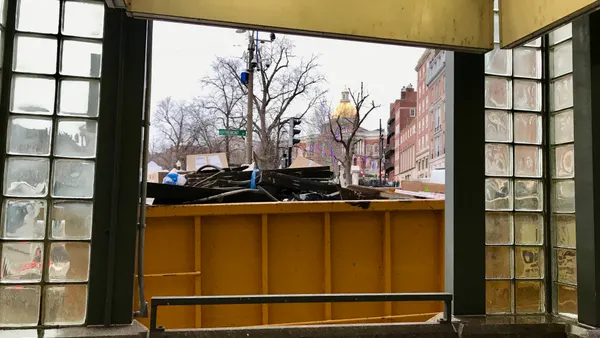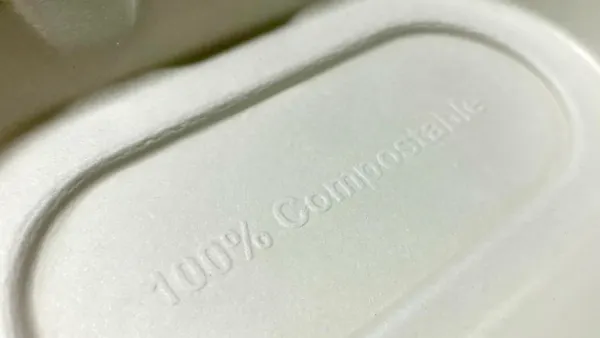Dive Brief:
- Municipalities in Rhode Island will be assessed a fee for every load of recycling that is contaminated.
- A $250 charge will be levied against cities for shipments brought to the Rhode Island Recovery Corp. in Johnson that do not meet environmental standards.
- Communities that use a pay-as-you-throw system have a better track record at keeping improper trash out of the recycling bin.
Dive Insight:
From the 85 to 90 loads of recycling the Recovery Corp. facility receives daily, as many as five are rejected due to contamination. The recycling services director, Sarah Kite-Reeves, said employees have discovered diapers, furniture, propane tanks -- and even fish heads -- that people have placed into recycling bins.
Communities across the U.S. have tried different tactics to reduce contamination in recycling bins. City trash inspectors in Tulsa, OK began putting repeat offenders on notice in March. Measures to curb recycling contamination include tagging the bins, contacting the households responsible for the oversight, and, as a final resort, removing the collection bin altogether.
Pay-as-you-throw (PAYT) is a collection system that charges households for the volume of trash discarded on the curbside. One case study concluded that PAYT households increased the amount they recycle while reducing their garbage output. Furthermore, the system generally saves towns money. For instance, Worcester, MA saved between $10 and $20 million dollars over the past two decades since switching over from standard curbside collections to PAYT.








